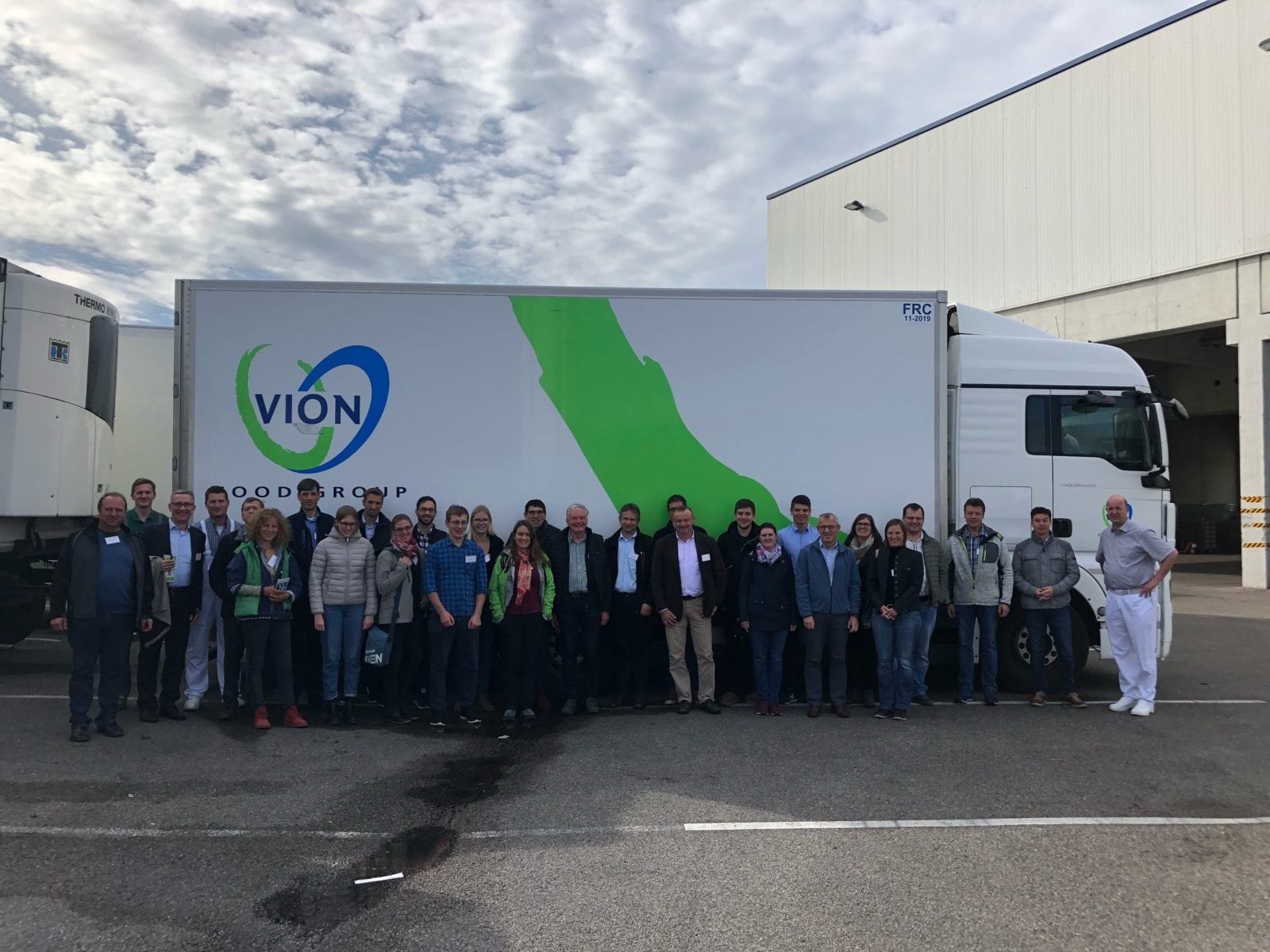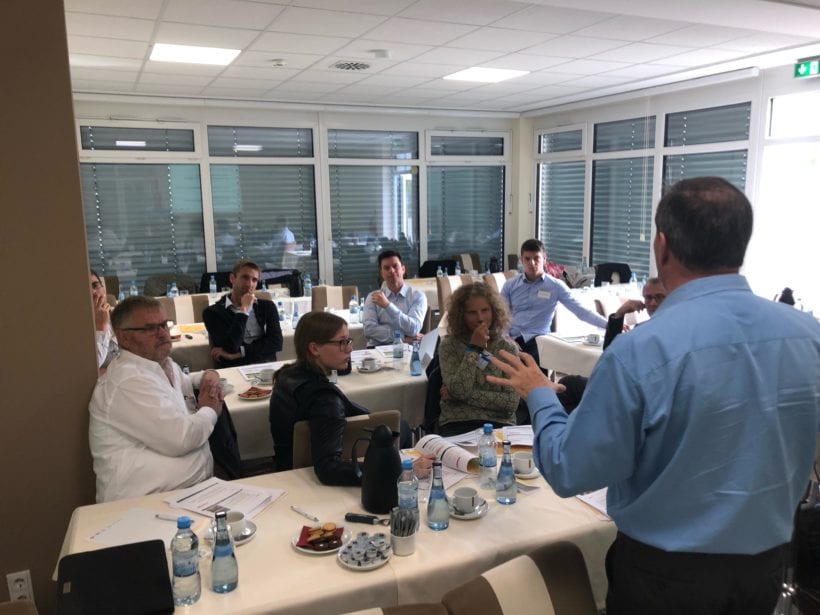German Oil and Feed Millers Learn More about U.S. Soy
- Category:
- Animal Utilization
- General News

In close cooperation with the German Animal Feed Association (DVT) and the German Association of Oilseeds Crushers (OVID), USSEC recently organized a one-day conference in Crailsheim, Germany. The nearly 40 participants came from German feed companies and allied industries.
The conference began in an unusual way, with a visit to a slaughterhouse/meat processing facility owned by VION. A major player in the Northern European meat business, VION has been operating in Crailsheim for more than fifty years and now runs ten similar facilities throughout Germany and the Netherlands. This plant has 600 employees and processes more than 20,000 pigs and 2,200 cattle each week. The meat is further processed by retailers, enters the food service business and sometimes ends up as barbeque at U.S. military bases in Europe. Specialty cuts are exported to Asian markets.
Food safety and hygiene are the highest priority for VION so all of the guests “geared up” in protective clothing, including face masks, which were useful in some parts of the tour. Guests washed their hands no less than six times during the two-hour visit.
VION highlighted the inspection and veterinary labs where products were tested; their efficiency in using as much of the animal parts as possible and worker safety. They welcomed the visit as part of their efforts to improve transparency and to inform and engage consumers on the meat processing business.
Following lunch, three speakers gave presentations: the first covered current developments in the protein/animal feed market which reviewed current prices, supply and demand for soy and rapeseed in Germany and the EU; the second was on sustainable feed covering current issues related to nitrogen and phosphorous levels and pending regulations from the local to the national to the EU level; and the third presentation covered the Digital Transformation in Trade and the Food Supply Chain where the audience learned how rapidly technology is changing various parts of the supply chain.
After these formal presentations, there was an “Innovation Table” where the participants rotated between three different rooms for smaller and more interactive sessions. USSEC Regional Representative for Northern Europe Eugene Philhower gave a presentation on how GM products are regulated in the United States with a focus on CRISPR technology. He used the issue to segue into a discussion on sustainability, raising the question on how to balance the widespread consumer resistance to GM products in Germany and the need to sustainably feed a growing global population. The other breakout sessions covered current developments in the rapeseed market in Germany and the question: soy or worms – what will livestock be eating in 2025? These sessions were livelier with a spirited discussion on the issues.
DVT uses the event to engage and inform their members on current topics while demonstrating cooperation with USSEC and OVID. USSEC gains valuable industry contacts and uses the opportunity to promote sustainable U.S. Soy. USSEC is seen as a valuable partner in the soy value chain in Germany. AgroKontact, a German agricultural public relations company under a USSEC contract, organized the program.


